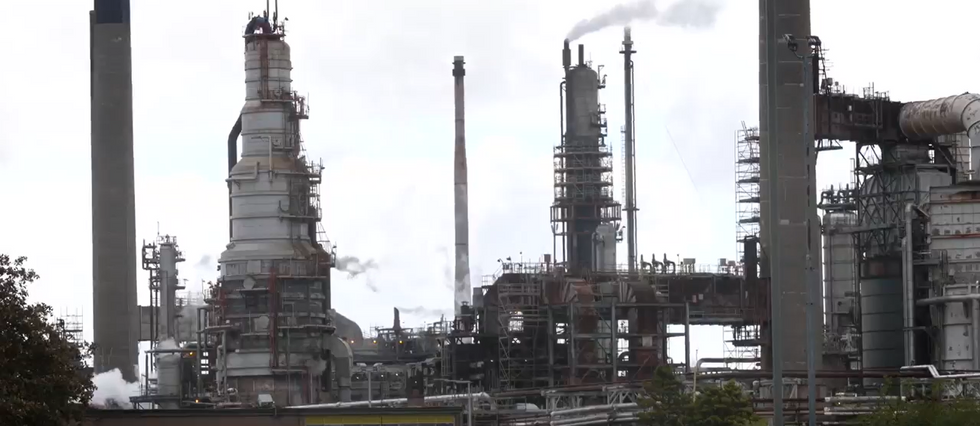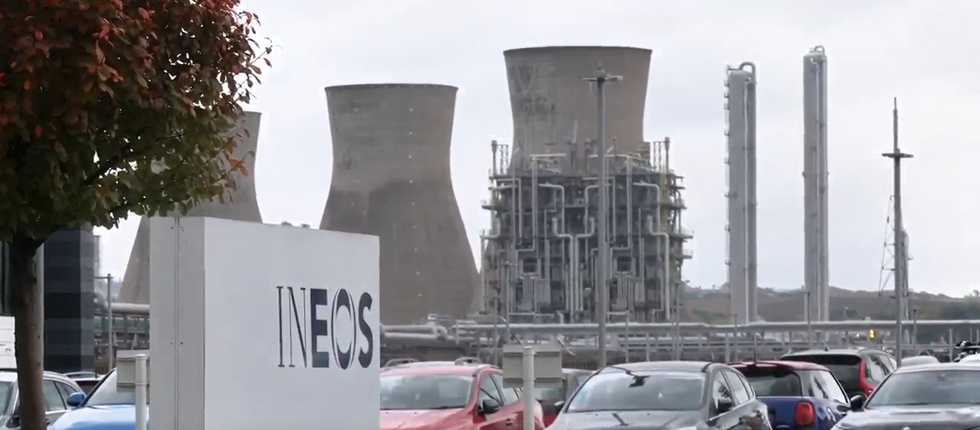Kemi Badenoch says yes to drilling for new oil and gas in the North Sea
GB NEWS
In a company email to all Grangemouth staff, Petroineos notified workers that crude production had ceased
Don't Miss
Most Read
Trending on GB News
After 101 years of operation, the owner of Grangemouth has confirmed Scotland’s last refinery has now ceased production of crude oil.
Petroineos, who took over the site in 2011, pushed back on union claims the site could formally transition into a production hub for sustainable aviation fuel, instead opting to utilise the port on the Firth of Forth to import fuel to meet Scottish demand.
In a company email to all Grangemouth staff, Petroineos notified workers that crude production had ceased and beginning today up to 200 workers would be made redundant by the end of June, in addition to the 400 laid off to date.
The notice read: “With the shutdown of CDU2 today, Grangemouth Refinery will cease processing crude oil and the era of refining at Grangemouth comes to an end.

Grangemouth Refinery has ceased operations after 101 years
GB News“For over a 100 years the name Grangemouth has been synonymous with the refining industry, but the world has changed and the market in Scotland has been unable to support a refinery.”
Iain Hardie, regional head of legal and external affairs, said: “Grangemouth refinery is no longer processing crude oil.
“Petroineos has invested £50million in creating a modern import and distribution terminal capable of receiving finished fuels by sea for onward distribution to customers around the country.
“From today, we will be importing all the products necessary to meet Scotland’s demand for transport fuels.”
With hopes for a transition dashed and up to 200 workers facing redundancy, Hardie said Petroineos “would like to pay tribute to the workforce”.
“Our colleagues have shown incredible commitment, dignity and resilience during months of uncertainty regarding the future of this facility, through the consultation period, phased shutdown and the start of refinery decommissioning.”
LATEST DEVELOPMENTS:

Beginning today up to 200 workers would be made redundant by the end of June, in addition to the 400 laid off to date
GB NewsOther areas of the complex will not be affected by the refinery’s closure, such as the Forties Pipeline system connected to the North Sea.
In both Holyrood and Westminster, politicians have been broadly critical of the decision to shutter the refinery, though ultimately unsuccessful in invoking a Scunthorpe-style response to save the plant and jobs.
Addressing the chamber in Westminster on Tuesday, Brian Leishman, the Labour MP for Alloa and Grangemouth, said: “Today is the end of over a century of refining at Grangemouth.
“Scotland once again is a victim of industrial vandalism and devastation, and I don’t want anyone in this chamber to dare mention a ‘just transition’, because we all know that the Conservatives when in power and the SNP currently in Holyrood did nothing to avert this catastrophic decision happening”.
Kenny MacAskill, newly appointed leader of ALBA Party, called the closure of Grangemouth “a dark day for Scotland”.
Responding to the news from Petroineos, he said: “This is a dark day for Scotland and a betrayal of the workforce by Labour.
At the election, they promised to save the refinery but have gone back on that pledge whilst at the same saving British Steel in Scunthorpe.
“Labour have cynically pocketed the votes of the workers and then abandoned them once elected. This is a betrayal for which Labour will never be forgiven.
“Scotland is now the only major oil producing nation in the world not to have its own refining capacity.”
Scottish and UK Governments have already joined forces to fund Project Willow, a plan to protect hundreds of jobs at the site.
Last month’s feasibility study identified nine credible projects from a list of 300, to keep Grangemouth at the beating heart of Scotland’s industrial landscape.
The Scottish Government has backed up UK Labour’s pledge of £200m with a further £25m, but the report identified £3.5billion of private investment would need to be raised to create 1,100 jobs - half the number of roles at risk from the refinery’s closure.







